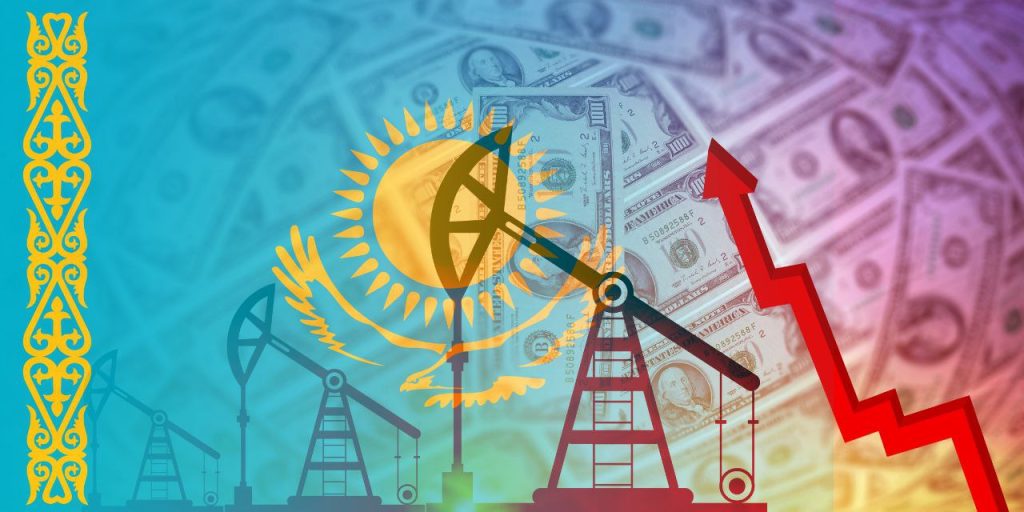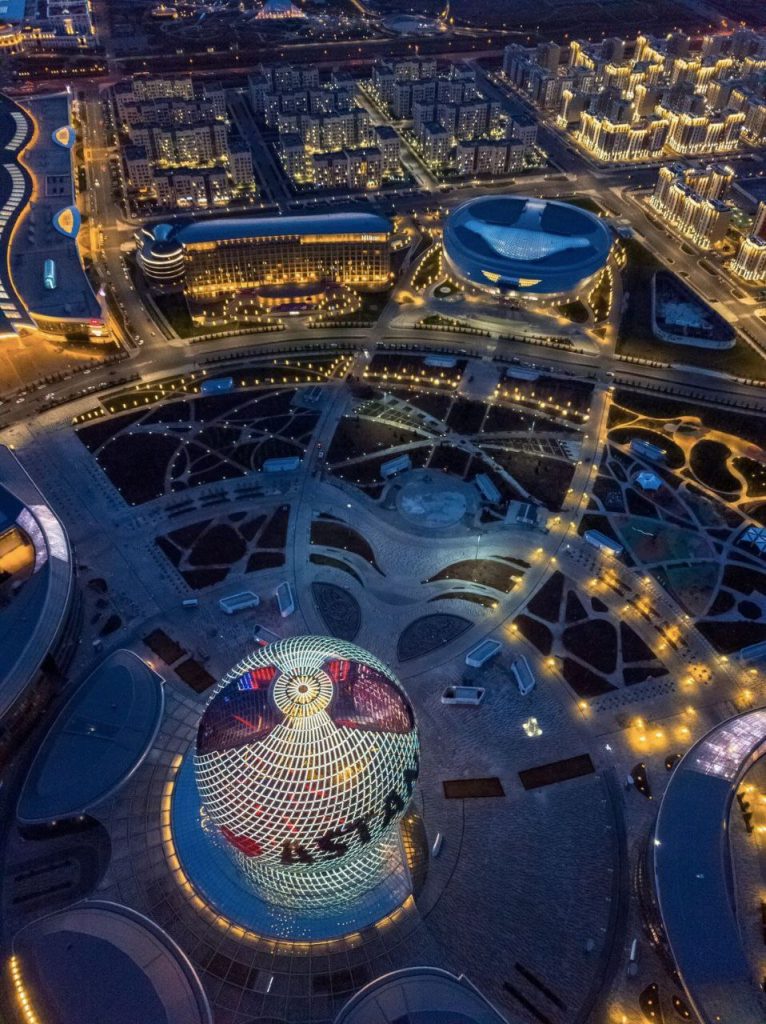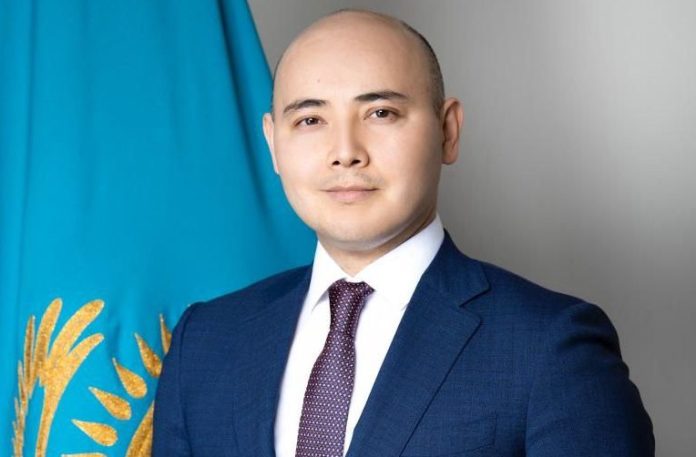Kazakhstan’s Minister of National Economy, Alibek Kuantyrov, spoke to NE Global in an exclusive interview about his country’s relations with Europe, Astana’s economic partners, as well as the Kazakh government’s interactions with international organizations.
NE GLOBAL (NEG): What was the impact of the entry into force of the enhanced partnership and cooperation agreement between the EU and Kazakhstan? What new opportunities has it opened up?
Alibek Kuantyrov (AK): Kazakhstan became the first country in the CIS, (the Russophone Commonwealth of Independent States that was set up in December 1991, immediately after the dissolution of the Soviet Union) to sign the Enhanced Partnership and Cooperation Agreement with Europe. The agreement regulates 29 areas of cooperation, including trade and economic relations, transportation, energy, climate change, space, innovation, industry, agriculture, health, education, culture, media, civil society, business environment, public finance, statistics, banking, etc.
The agreement significantly expands the horizons of interaction and opens new opportunities for cooperation between the Republic of Kazakhstan and the European Union, including Kazakhstan’s accession to the World Trade Organization and participation in the Eurasian Economic Union.
The agreements indicated in the Cooperation Agreement are being gradually implemented. Today, the EU is a leading trade partner and the largest investor in Kazakhstan’s economy. Bilateral platforms where we can address important issues are expanding. After entering into force of the Agreement, our cooperation is expanded by involving the Committee for Cooperation in Trade Configuration, subcommittees on customs cooperation, energy, transport, environment, and climate change, the Business Platform EU-Kazakhstan, along with the traditional platforms such as Cooperation Council, Cooperation Committee.
In recent years, we have witnessed breakthrough progress in cooperation between Kazakhstan and the European Union. Last October, at the initiative of President Kassym-Jomart Tokayev, the first meeting between the heads of Central Asian states and the President of the European Council took place, which became an important milestone in the development of relations between the entire region and the European Union.
The Second Economic Forum European Union – Central Asia was held in Almaty on May 18-19, this year, with the participation of Prime Minister Alikhan Smailov and Vice-President of the European Commission for Trade and Economy Valdis Dombrovskis, and other heads of delegations of Central Asian states. The core organizers of this Forum were the Ministry of National Economy of Kazakhstan, the EU, and the Organization for Economic Co-operation and Development.
During this Forum, the Government of Kazakhstan and the European Union signed a financial agreement, the EU-Kazakhstan Cooperation Mechanism, until 2024, which will support the implementation of the Enhanced Partnership and Cooperation Agreement in two priority areas: sustainable economic growth and the rule of law.
Kazakhstan welcomes the European Union’s desire to develop cooperation within the framework of the European Union Strategy for Central Asia, in particular its Global Gateway initiative.
This initiative will promote high-tech, green, and secure global links in digitalization, energy, transport, health, education, and research.
I can surely admit the implementation of the Enhanced Partnership and Cooperation Agreement has brought our relations to a newer, higher level.
NEG: What place does Europe occupy among your various economic partners?
AK: Today, the European Union is Kazakhstan’s largest trade and investment partner.
The EU accounts for about half of Kazakhstan’s foreign trade and accumulated foreign investments. Thus, over the past two years (2021-2022), the volume of Kazakhstan’s trade with the European Union increased by 68.1% and amounted to $40.0 billion.
In the first 8 months of 2023, trade turnover between Kazakhstan and EU countries amounted to $27.2 billion, which is 3.1% higher than in the same period of the previous year. The total volume of EU FDI to Kazakhstan reached more than $160 billion.
Currently, more than 3,000 companies with European capital successfully operate in various sectors of our country’s economy, including such world giants as Shell, Eni, Total, Amazonen-Werke, Air Liquide, Alstom, Carlsberg, Siemens, Orano, Linde Group, Polcotton and others.
As a result of many years of pragmatic and progressive cooperation, we successfully managed to build trade and investment interaction and mutually beneficial partnership relations between Kazakhstan and the European Union.
NEG: What are the economic exchanges with Europe mainly based on? Who are your main partner countries in Europe?
AK: European countries have traditionally been major trading partners and investors for Kazakhstan. According to our 2022 stats, the core European trade partners of Kazakhstan are Italy (trade turnover – $14.9 billion), the Netherlands ($5.8 billion), France ($4.0 billion), Germany ($2.8 billion), and Romania ($2.7 billion). These countries remain the top-five EU trading partners for this year, as well.
We export mainly oil and oil products, ferroalloys, hard coal, unprocessed aluminum, uranium, natural gas, and zinc.

The main EU imports to Kazakhstan are medicines, aircraft, cars, vaccines, pumps, compressors, and fans.
We are interested in utilizing all available opportunities to further expand investment cooperation and diversify mutual trade.
NEG: Which sectors do you want to develop to reduce hydrocarbon exports?
AK: Recently, we have launched cooperation in new areas – rare earth metals, green hydrogen, batteries, transportation development and logistics potential, and the diversification of commodity supply chains.
In October last year, a crucial agreement was signed with the company Svevind worth €30-40 billion to install wind and solar power plants in western Kazakhstan and produce 3 million tons of hydrogen from 2030, which will be one-fifth of the EU’s needs in this product.
In November 2022, the President of the European Commission signed a memorandum in the field of rare earth metals. This document will facilitate the establishment of financial and technological cooperation between Kazakhstan and EU industrial alliances.
At the first meeting of the leaders of the Central Asia-European Union, President Tokayev stated that Kazakhstan can offer more than 100 types of processed goods, worth about $1.5 billion a year, in sectors such as mechanical engineering, iron and steel production, food processing, and agriculture.
Kazakhstan, as the seventh largest grain producer in the world, could also become a strategic partner for Europe in realizing the global food security agenda, including food supplies to Afghanistan.
We are interested in implementing joint investment and technology projects with European investors in Kazakhstan’s agricultural sector.
In addition, we have ample opportunities to supply critical materials and elements. We can offer more than 60 deposits of precious and non-ferrous metals for exploration and development.
We also pay special attention to stimulating green investments. In this context, I would like to mention the opportunities of the Astana International Financial Center, which could act as a unified regional platform for finance.

AIFC has become an important platform for attracting investments, with a full range of relevant financial instruments and services, an independent regulatory and dispute resolution mechanism based on common law, the AIFC Court, and the International Arbitration Center regulated by renowned international lawyers.
As a testament to its success, over 2,100 companies from almost 80 countries have already registered with the center. Therefore, we invite our European and Central Asian partners to actively utilize the opportunities that the Astana International Financial Center’s platforms can offer.
The spheres of interaction between our country and European partners are inexhaustible and promising. We are ready to make maximum efforts to diversify and further expand the range of our cooperation.
NEG: Since the establishment of the Organization for Economic Cooperation and Development in Paris in 1960, it has established itself in the field of global economic governance. In this regard, how is Kazakhstan’s interaction with the OECD proceeding?
AK: During my recent visit to France in October this year, we met with OECD representatives on several occasions to exchange views on strengthening our partnership with the OECD. Kazakhstan is a member of 37 OECD working bodies and has joined 42 legal instruments. The OECD has developed 412 recommendations within the framework of a legal instrument for us, of which Kazakhstan has implemented 247 recommendations. Work on the remaining 164 recommendations is ongoing.
In addition, for the development of our country, the OECD is conducting a country review of various sectors of the economy where reforms are needed. To date, the OECD has conducted 28 such reviews and made 178 recommendations to remove barriers that impede the progress of our economy.
For further effective interaction with the OECD and to apply to join the OECD in 2025, an Action Plan for 2022-2025 is in place.









